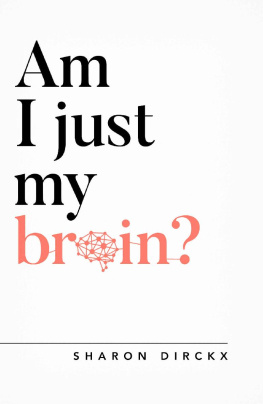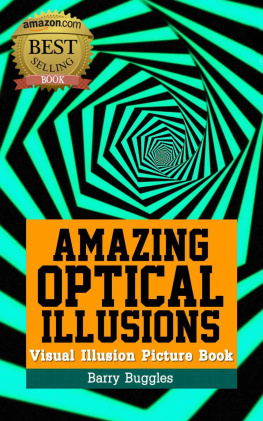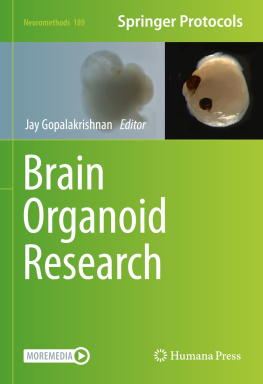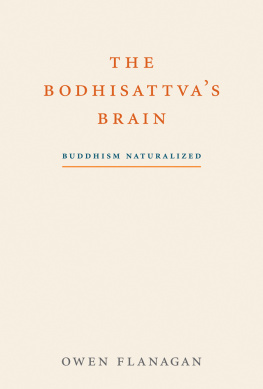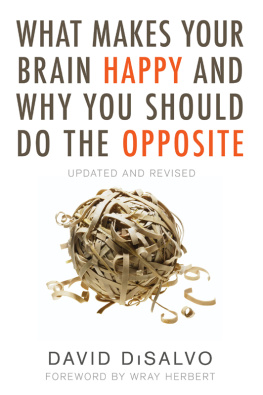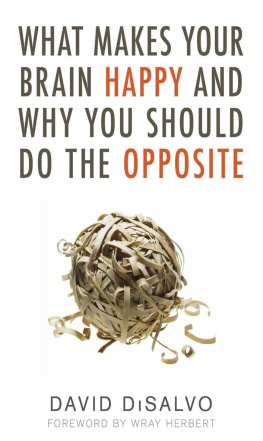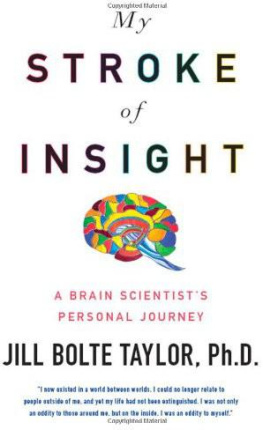For my parents Dennis and Pauline.
Your love and support over a lifetime have
ultimately made this book possible.
Introduction
An early childhood memory of mine is of sitting by a window on a rainy day, watching the drops splash against the pane. Like all normal children, I spent most of my life racing around. But at this particular moment, I was still, and my mind had time to drift. I remember a series of questions popping into my head:
Why can I think?
Why do I exist?
Why am I a living, breathing, conscious person who experiences life?
I dont really remember where the questions came from. Neither do I remember my exact age. They were just there. Unprompted.
I know I am not the first to have this kind of moment. When we sit still for long enough, all kinds of things bubble to the surface of our consciousness. Mindfulness gurus even tell us that bringing this kind of awareness into the foreground is good for our health. The more we are in touch with our inner life (such as our heartbeat, breathing and underlying emotions) and our outer environment (such as birds singing in the distance and doors slamming in the next room), the better. Conscious awareness seems to be central to what it means to be a living, breathing human being.
But what exactly are human beings? And how do we marry aha moments, such as the one described above, with some of the narratives coming from the sciences? Are we merely advanced primates? Are we machines? Are we souls confined to a body? Or are we some combination of all three? There are lots of different responses out there. Some of the loudest voices to answer this question come from neuroscience. They respond, You are your brain . You are your neurons. Why can you think? Because your neurons are firing. End of story.
Francis Crick, who co-discovered DNA and won the joint Nobel Prize in Physiology or Medicine in 1962, said this in his book The Astonishing Hypothesis:
You, your joys and your sorrows, your memories and your ambitions, your sense of personal identity and free will, are in fact no more than the behavior of a vast assembly of nerve cells and their associated molecules. As Lewis Carroll might have phrased it: Youre nothing but a pack of neurons. This hypothesis is so alien to the ideas of most people alive today that it can truly be called astonishing.
Fifty years later, this hypothesis seems far from alien. In fact, many no longer consider it a hypothesis. According to them, it is the truth. The only truth.
Is Crick correct? Do our brains entirely account for who we are? How we answer this question has very far-reaching implications.
There are implications for free will. If we are driven by our brains, then are we really free to make decisions or are we simply driven by the chemical reactions within? On these grounds, how can anyone be held responsible for their actions, good or bad?
There are implications for robotics. Robots occupy more and more of the work force and have now entered our homes in the form of Google Assistant, Alexa and Siri. Will we eventually be able to manufacture conscious robots who are fully but artificially intelligent?
There are implications for ethics. If our brains define us, then personhood is dependent on having a fully functioning brain. But if that is true, then what status should we assign to those whose brains are not yet fully developed, such as premature and newborn babies? Or those whose brains have never functioned to full capacity, such as those with learning disabilities? Or those whose brains once functioned well but are now in a state of degeneration due to Alzheimers disease or vascular dementia? In fact, none of us are exempt here. Beyond the age of 18, even a fit and healthy person begins to lose brain cells at an alarming rate. Our brains decline with age. Does this mean that personhood does too?
Finally, there are implications for religion . Since it has come to light that the brain is highly involved in religious belief and experience, can neuroscience now explain religion away? Is religious belief merely a brain-state, confined to those with the correct anatomy?
Am I just my brain? is not simply a scientific question. It taps into questions of identity that science alone cannot answer, and to fully consider the question we will need perspectives from philosophy and theology as well as neuroscience.
The mind is of particular importance in this conversation. Is there more to us than neurons because there is such a thing as the mind? We dont merely secrete brain chemicals; we also think thoughts. And we dont think with our brains but with our minds. But what exactly is the mind, and how does it relate to the brain? Herein lies the rub. The relationship of mind to brain is disputed. Essayist Marilynne Robinson, in her book, Absence of Mind , reads the situation well by pointing out that
Whoever controls the definition of the mind controls the definition of humankind itself.
The answer you give to the question Am I just my brain? is not simply for the neuroscientist and philosopher. It has implications that affect all people.
Glossary
Its unavoidable that a book on this subject will include many specialist terms. I have tried to keep the technical biological language to a minimum, but the words that philosophers use to describe the ideas discussed can be just as confusing. Hopefully the following list will help you navigate the thoughts, questions and answers in this book a little more easily.
Compatibilism: The view that determinism is true but is also compatible with free will. Compatibilists believe that humans are determined by prior causes but can also act freely when they are not being constrained or are seeking to fulfil their desires. This is also known as soft determinism.
Consciousness: A property of the mind through which our subjective thoughts, feelings, experiences and desires have their existence.
Determinism: The belief that prior causes guarantee a particular outcome. Every event has a cause.
Downward Causation: The process by which the mind is able to act downwards on to the brain and cause changes in the brain.
HADD: Hypersensitive Agency Detection Device. A device that cognitive scientists of religion say is built into the human mind, enabling patterns, signals and other agents from the surroundings to be picked up.
Hard-Determinism : The belief that prior causes entirely guarantee a particular outcome, such that it could never have been otherwise. In neuroscience this equates to the belief that the human brain and the choices arising from it are determined on every level by prior causes, thereby ruling out the possibility of free will.
Incompatibilism: The view that free will and determinism are incompatible with each other, which can be held by hard determinists and libertarians alike, but for different reasons. Hard determinists believe that the fixed nature of the brain rules out the possibility of free will. Libertarians believe that the human will is free from constraints, and therefore the brain cannot be determined on every level.
Libertarianism: The view that freely made decisions can be made by agents (here, people) that are not determined by prior causes. This view upholds human free will.
Materialism: The view that observable matter in time and space is all that exists. For the purposes of this book, it is used interchangeably with physicalism.
Mind: The bearer of the unseen, inner life of a person, in the form of thoughts, feelings, emotions and memories. The mind is the bearer of consciousness.
Neurologist: A physician who is trained in diagnosing and treating disorders of the brain and nervous system.

